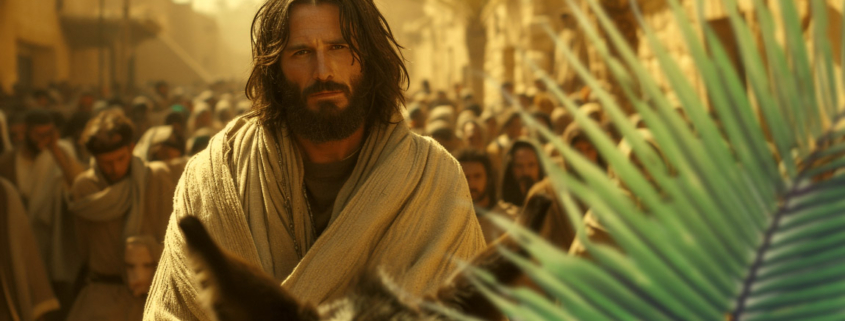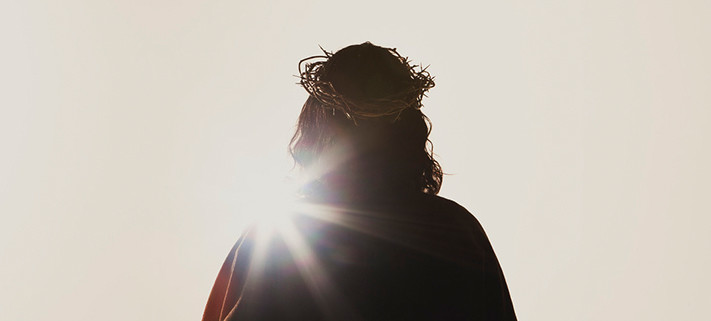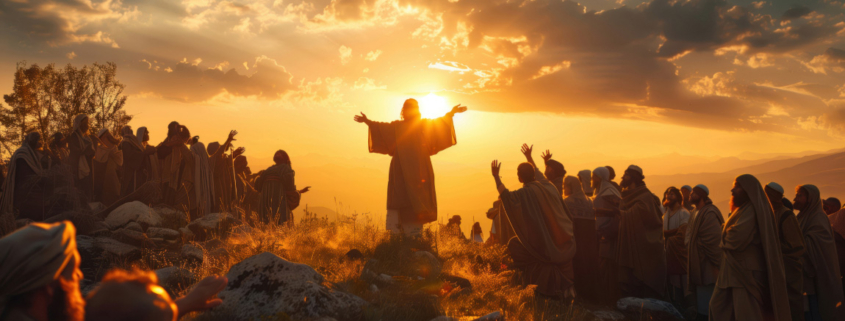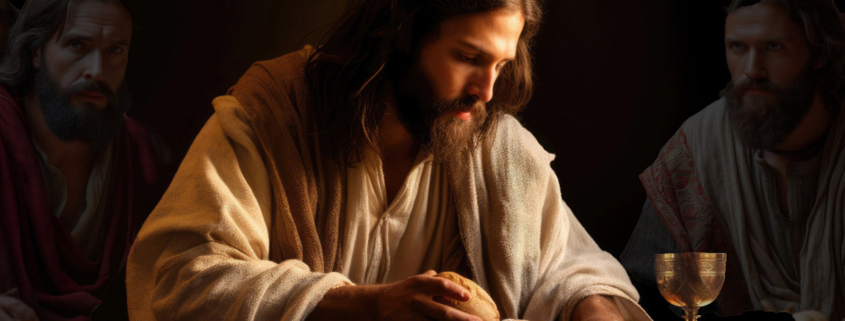In Christian churches all over the world, the Sunday before Easter is celebrated as Palm Sunday. There are processions and parades; choirs of children and adults singing hosannas and hymns…and there are palms. Churchgoers walk on them, children wave them, and altars wear them. All this is done to commemorate the coming of Jesus to Jerusalem to celebrate the Passover festival.
It is a strange yet stirring scene that the Gospels paint of that first Palm Sunday: Jesus is riding on a donkey, accompanied by his disciples and a great crowd of people. As Jesus approaches the city, some in the crowd take off their outer garments and lay them in his path, to roll out the “red carpet” for him. The crowds, even the children, sing psalms and hymns from the Old Testament that spoke of Jesus as the Savior God had promised to send his people.
And there are palms. People cut palm branches and took them to meet Jesus. With some of those palm branches the people paved the way for Jesus to enter the city; others waved the palm branches as they sang their hosannas and hymns of praise to Jesus.
But why palm branches?
Palm branches had a special place in the religious lives of the Israelite people. Once a year, they used palm branches to build shelters during a joyful celebration called the Feast of Tabernacles.
And palm trees enjoyed a certain prominence all year round because they were the evergreen trees of the desert. They kept their leaves even when everything else withered and died. Palm branches were symbols of life and joy and victory over death.
Palm Sunday palms are appropriate for our Palm Sunday worship too. They remind us that Jesus came to Jerusalem on the first Palm Sunday as the Savior whom God promised to deliver his people and bring life and salvation for all.
But even as we wave our palm branches and echo the hosannas of that day in Jerusalem, it’s important to understand the kind of deliverance, the kind of life and salvation that Jesus entered Jerusalem on Palm Sunday to bring. It was not an earthly deliverance from earthly enemies. It was not salvation from social injustice, poverty, and warfare. It was not an earthly life free from every evil. Any who expected—or still do expect—those things from Jesus are sadly disappointed.
The reason Jesus came to Jerusalem in such a strange way—riding a donkey (not a prancing stallion or on clouds of glory), accompanied by common people (not military men or angel hosts)—is that he came to die. God’s gracious plan for the salvation of sinners required Jesus, God’s own eternal Son, to die in shame as the substitute for all people, thus freeing sinners from the punishment they deserved in hell. To do that Jesus needed not an awesome display of the power and might that truly are his, but the kind of lowliness and humility we see on Palm Sunday.
The Palm Sunday crowds proclaimed Jesus to be a king, and he is indeed a King. But he is a King who hid his glory to die in shame in order to deliver all people from their sins and from the punishment of eternal death they deserved.
Someone once noted that it is not a palm branch that hangs above the altar in most Christian churches, but a cross. The cross reminds us that Palm Sunday, with all its jubilation and celebration, is not the end of the story. If it were, we would be left without a Savior from sin, without hope for eternity.
The Palm Sunday story continues on Good Friday at the cross of Calvary. There the King of glory died to take away the sins of the world. But even the cross and Jesus’ cold, dark grave are not the end of the story. Jesus rose in victory over death and the grave on Easter Sunday morning. The resurrection declares Christ’s mission accomplished; the resurrection says sinners are acquitted in God’s courtroom.
In the gospel, Jesus offers the forgiveness of sins that he secured on Easter Sunday to all. All who believe in Jesus as their Savior have peace with God here—and a place in heaven forever.
In Revelation 7, the apostle John tells about a second celebration that he saw (this time in a vision), a celebration in which a great multitude was standing in front of the Lamb. Those in that crowd were wearing white robes and holding palm branches in their hands, and they were singing this song of praise: “Salvation belongs to our God, who sits on the throne and to the Lamb” (verses 9 &10).
May our Palm Sunday celebrations here be but a prelude to that second celebration John wrote about: a celebration with our Savior and his people, with palm branches and with hymns of joy and victory—the celebration that will take place in heaven and that will never end!










